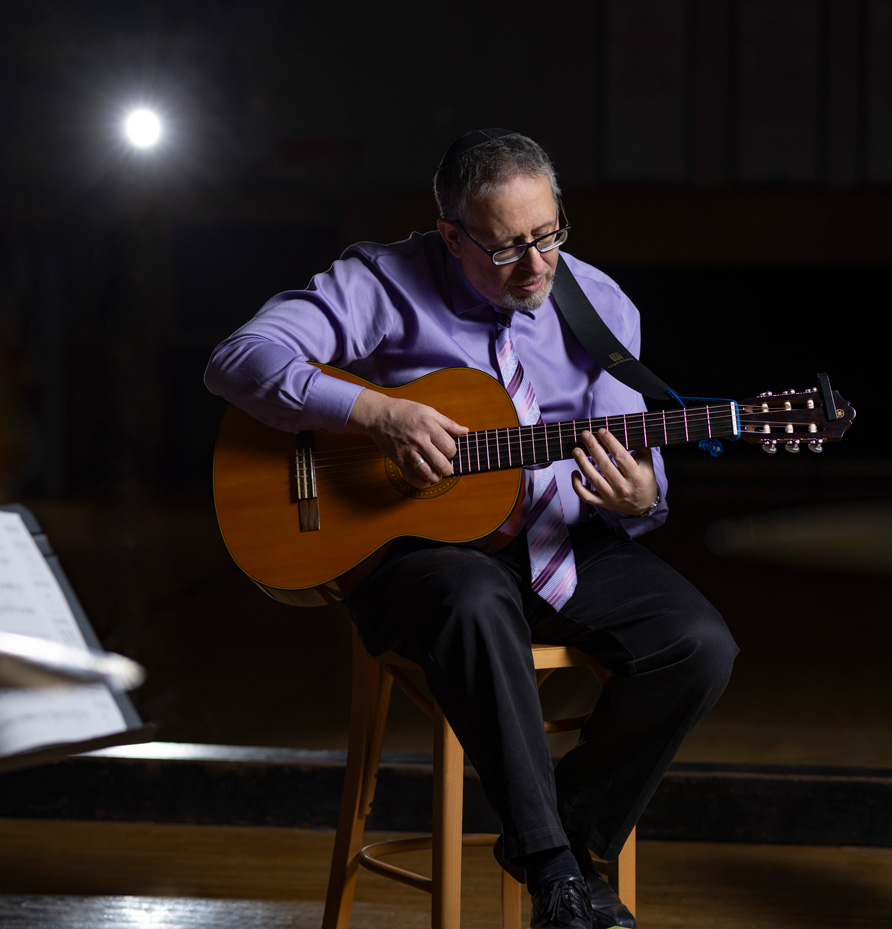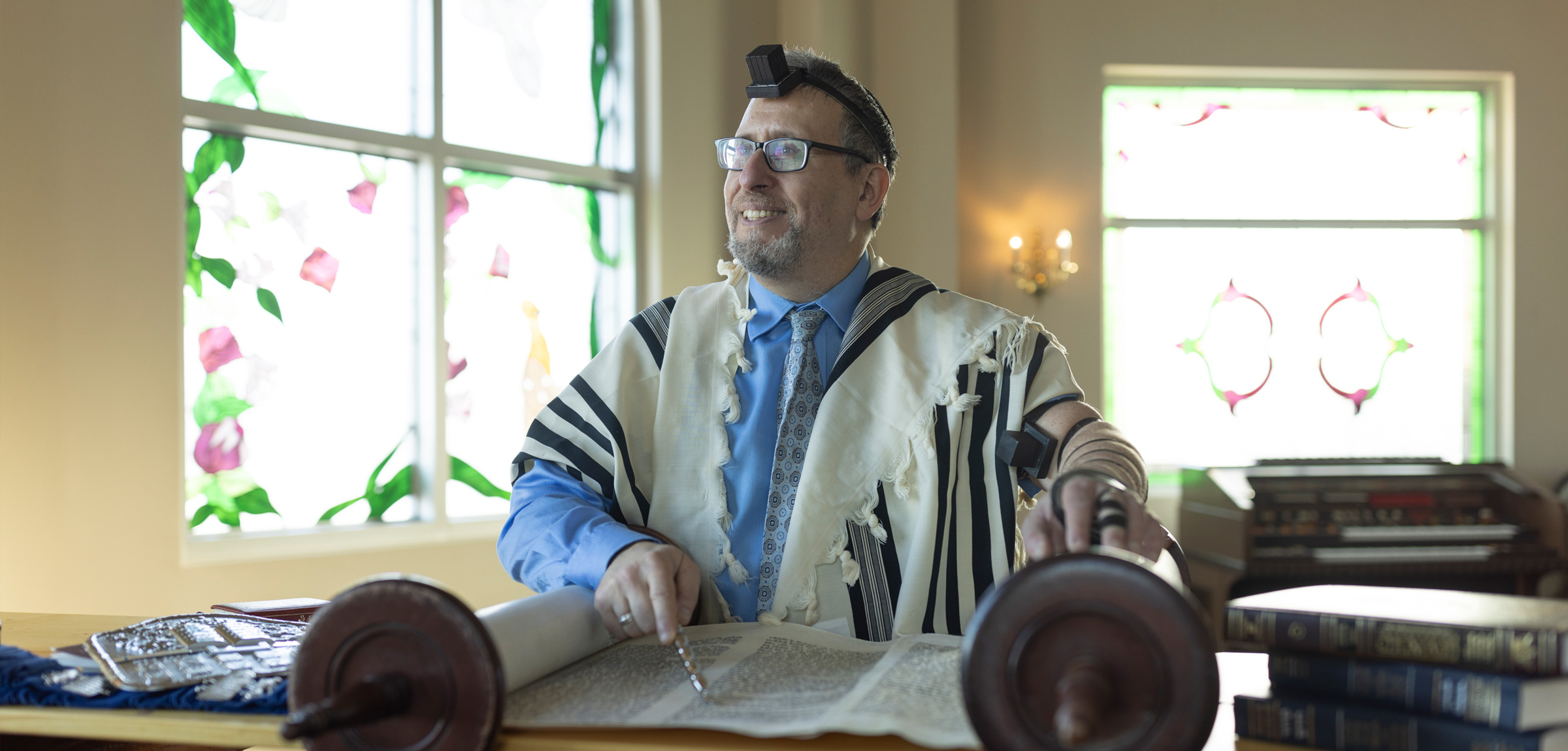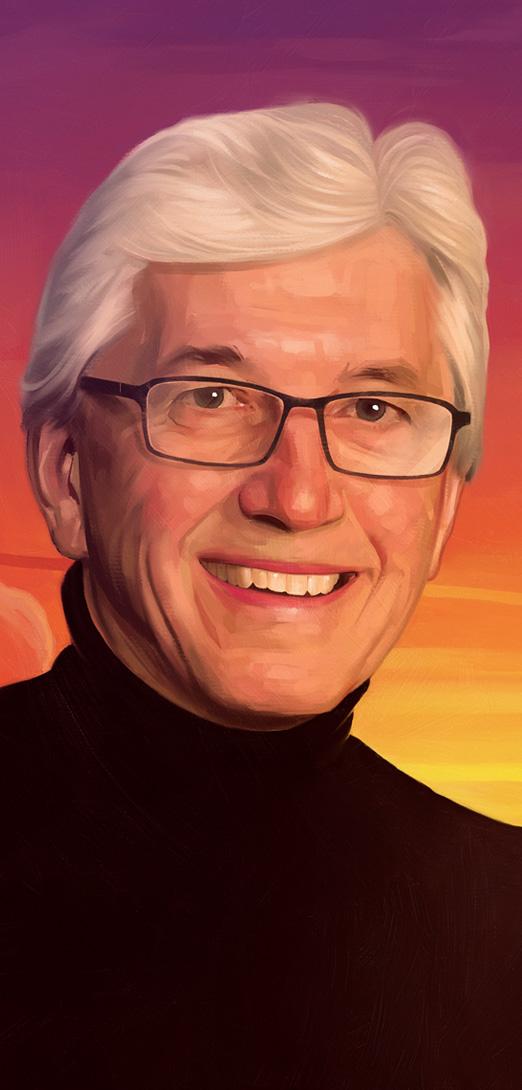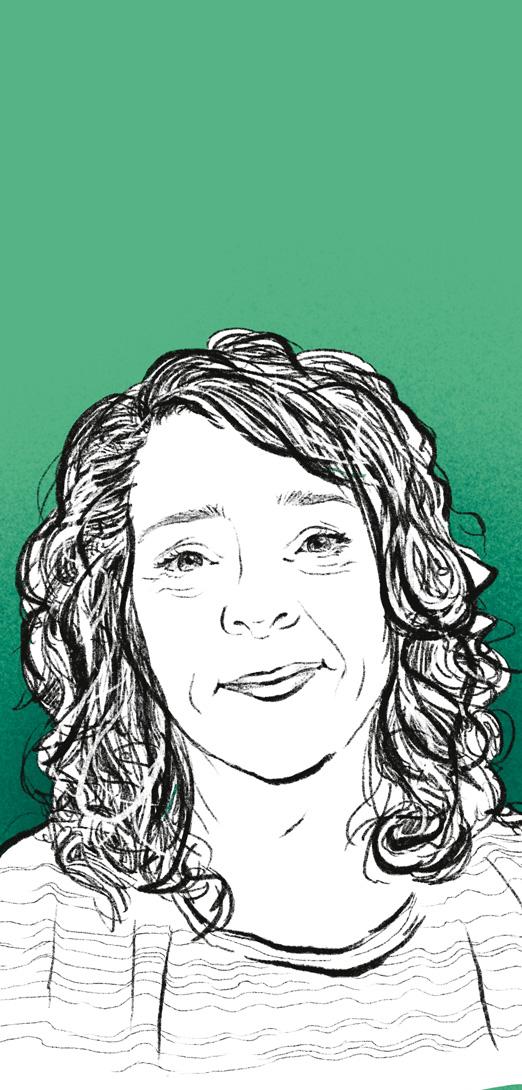Leonard Cohen knew something was off.
He was in his late 30s and feeling like an awkward fit in the business world. It had been several years since he’d earned his MBA from McGill, but he was still drifting from contract to contract, a period of instability that included stints as a marketing consultant for a software company and strategic planner for a non-profit. Except for the relatively rare occasions he spent training clients, none of it felt right.
A single, spur-of-the-moment act started the chain of events that changed Cohen’s life. One morning at his Montreal home, after he and his wife had gotten their children to school and daycare, Cohen hunkered down in the guest bedroom that served as his office and did what seemed natural to a tech-inclined person in 2007—he turned to social media.
Cohen’s Facebook post to friends and family went something like: I’m at a transition point in my career and I’m not sure what I should be doing. Based on what you know about me, what do you think I should pursue?
The post drew a couple dozen responses. Interestingly, they were evenly split between just two options: rabbi and teacher.
“I guess people saw in me certain abilities that I might not have seen clearly myself,” Cohen recalls. “It wasn’t evident to me then, by any chance, that I’d be able to do both careers."
But that’s exactly what Cohen is now doing— he’s both a rabbi and a school teacher.
Step one: become a rabbi
Throughout his adulthood, Cohen had worked part-time with a variety of Jewish congregations in Montreal, helping lead prayer services and teaching barand bat-mitzvah students. This experience enabled him to land a clergy job (not a rabbi, but similar) that brought him to Calgary in 2010.
Four years later, a new congregation started up and brought Cohen on as their spiritual leader. He was in this role when he learned about a remote learning opportunity that would enable him to become ordained as a rabbi. He completed this in 2016 and became the official rabbi for the Kehilat Shalom congregation.
Step two: become a teacher
Teaching in various private and spiritual settings had been a fixture of Cohen’s adult years. Even during his time in the business world, his favourite moments were those spent training clients. Those experiences motivated him to pursue his education degree while maintaining his role as a rabbi. His congregation supported his schooling and even helped pay for his tuition.
In 2021, at the age of 52, Cohen completed his education degree from the University of Calgary. Since then, he’s been teaching for the Calgary Board of Education while maintaining his rabbinical duties.
“I daresay that it has been mutually beneficial because a lot of the things that I learn in here— education—apply very well within the congregation,” Cohen says.
Step three: lead a double life
Now that he’s credentialed and employed as both a rabbi and a teacher, Cohen juggles a weekly schedule that is full and varied, yet also regimented. He teaches music half-time at William Reid, a K–4 school. This translates to a half day on Mondays and full days on Tuesdays and Thursdays.
During the days he’s not teaching, and many evenings, Cohen does a variety of planning and co-ordination for the synagogue. He does pastoral counselling, either by phone or in person, teaches online classes and does some private tutoring.
His Fridays are largely taken up by preparing for the next day’s sabbath, which is a day of celebration and relaxation both at the synagogue and at home. For Cohen, Saturday involves officiating a nearly three-hour service followed by a luncheon, then some reading, learning and relaxing.
Sundays vary. Cohen is sometimes called to officiate or lead a communal activity, and in the evening he teaches an online Jewish class.
Also in the weekly mix are two services at seniors’ homes.
“Because it’s two very different rhythms … it doesn’t feel like an overload,” Cohen says.
“The change of rhythm from going from one place to the next makes it feel quite manageable.”
He's their man
As a rabbi and a teacher, Cohen is known and loved for his warmth, kindness and genuine efforts to foster an inclusive atmosphere, but he’s also known for traits he shares with another Leonard Cohen from Montreal.
During the regular weekly services at Kehilat Shalom, most of the prayers are sung, with Cohen leading the way.
“We’re happy to have all the singing because it moves the service along and it’s just joyful,” said congregation member Leslie Levant.
Cohen also sings and plays guitar while officiating services at seniors’ homes, and he performs well enough that his appearances attract non-residents from nearby neighbourhoods, Levant said.
“We like the fact that he participates in the wider community and we like that he is a champion of inclusion. It’s very moving, very touching.”
We like the fact that he participates in the wider community and we like that he is a champion of inclusion. It’s very moving, very touching.
—Leslie Levant, member of Kehilat Shalom congregation
The situation is similar at William Reid, where Cohen’s abilities have earned him a reputation among staff and students.
“It’s nice to be in his class listening to him singing,” said principal Christine Stiles.
Cohen’s willingness and ability to perform have helped him to forge a special connection with students, particularly the older boys, who can sometimes be difficult to reach, Stiles said.
“Watching him with some of our older boys, it’s a lovely relationship,” Stiles said. “He makes music seem cool and very accessible to them because he’s singing in front of them.”
Common Denominator
The Calgary Board of Education has an administrative regulation that prohibits teachers from disclosing their religious affiliation within the school setting, so there’s a definite line between Cohen’s role as a rabbi and his role as teacher. However, Stiles believes that his spiritual grounding and ease with storytelling add richness to his teaching.
“That background and perspective absolutely make him an excellent music teacher,” she said, “because he’s got such a unique perspective.”
For Cohen, both his careers are about connecting with people. As a rabbi, he’s focused on getting to know his congregants well and supporting them in their individual journeys while also helping them come together as a close-knit, inspired community. As a teacher, Cohen says his philosophy is driven by an adage that came to him via his mentor: “It’s not what you teach, it’s who you teach.”
“I want to love and appreciate and enjoy these students as people,” Cohen says. “I love those moments when a classroom gels together and gets energized collectively around a particular activity, lesson or project. It does the heart good.”
Reflecting on the two paths that emerged from his long-ago social media post, Cohen feels that he made a good choice … twice.
“I can’t imagine a situation where I’m not doing teaching or officiating,” Cohen says. “They feel very right to me.”
In concert with Leonard Cohen |
||
|
You were born in Montreal at a time when Leonard Cohen was already famous. How did your name come about? I’m named after two great-grandfathers named Layzer, whose names in English approximate Leonard. It’s customary in Judaism to name a child in memory of someone. The two died long before my birth; most of their families perished in the Holocaust. |
 |
|
|
When Leonard Cohen the singer-songwriter died, you performed some of his material at a memorial. What is your favourite Leonard Cohen song to perform? I’ve enjoyed performing Famous Blue Raincoat, the words of which are a letter from a broken-hearted man to his friend. There’s a neat coincidence in singing the song’s final lyrics, “Sincerely, L. Cohen.” |
||
|
What is your favourite song to perform overall? Kol Nidre is chanted in synagogue at the outset of Yom Kippur, when Jews gather to pray for forgiveness. It is sung without instrumental accompaniment, while the audience typically sways or chants along as the prayer builds to a great crescendo. It provides for a powerful moment. |
||
|
Do you have any down time in a typical week? What do you do with it? I make sure to schedule down time each week. Hanging out and talking with my family is a delight. Cooking is a pleasant way to focus away from worries. I also like doing fitness activities for my mental and physical health. |
||
|
What do you miss most about Montreal? Food, family, friends. I would have added a fourth F—Français—but teaching French immersion provides wonderful continued exposure to the latter. |
||
Got an idea? In Profile features an interesting teacher in each issue of the ATA Magazine. If you know of a teacher who would be a good profile subject, please contact managing editor Cory Hare at cory.hare@ata.ab.ca.



